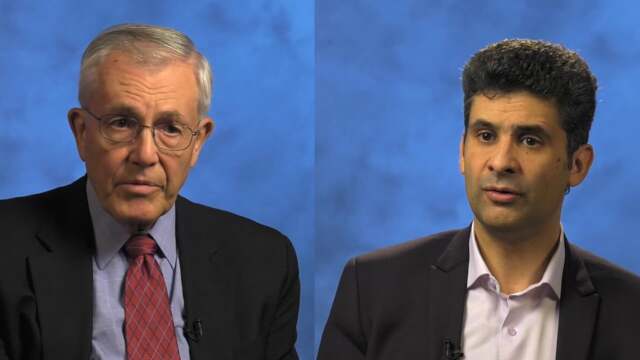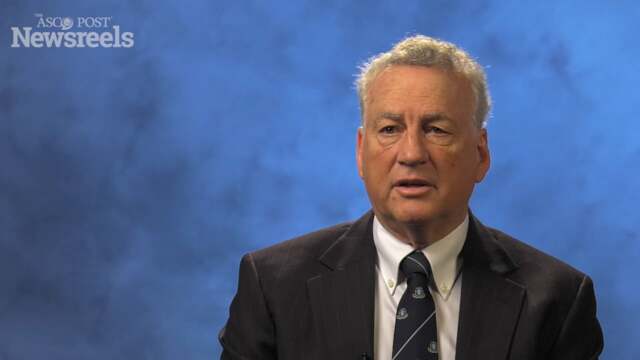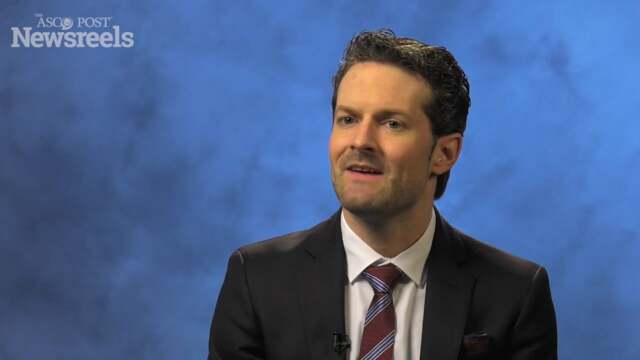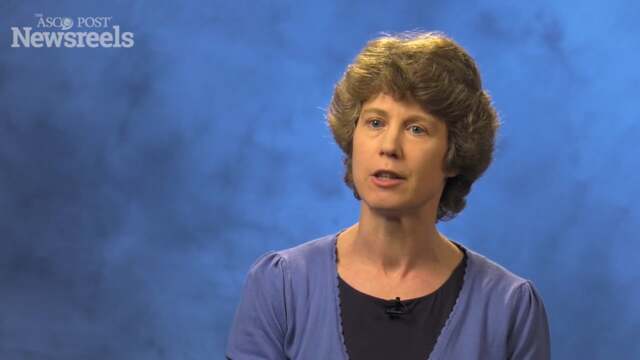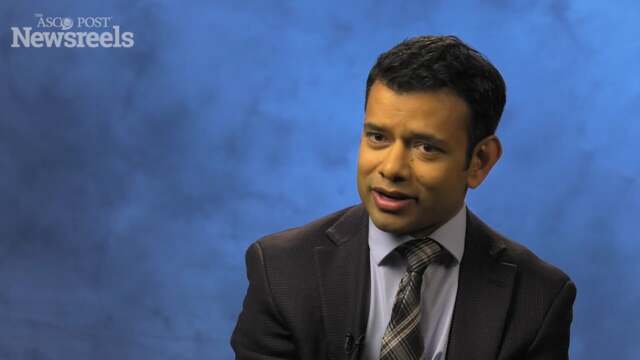Rana R. McKay, MD, on RCC: Continuing Benefit After Halting Treatment
2017 Genitourinary Cancers Symposium
Rana R. McKay, MD, of the University of California, San Diego, discusses study findings on PD-1/PD-L1 responders with metastatic renal cell carcinoma who discontinue therapy for immune-related adverse events. (Abstract 467)
George J. Bosl, MD, of Memorial Sloan Kettering Cancer Center, and Karim Fizazi, MD, PhD, of Gustave Roussy and the University of Paris Sud, offer the “pro” and “con” viewpoints for treatment intensification in patients with poor-prognosis germ cell tumors with unfavorable marker decline.
L. Michael Glodé, MD, of the University of Colorado Cancer Center, discusses study findings on adjuvant androgen deprivation vs mitoxantrone plus prednisone plus ADT in high-risk prostate cancer patients following radical prostatectomy. (Abstract 2)
Roland Seiler, MD, of the University of British Columbia, discusses a way to identify molecular subtypes of muscle-invasive bladder cancer, the varying responses to cisplatin-based neoadjuvant chemotherapy, and which patients show the most benefit. (Abstract 281)
Emma Hall, PhD, of the Institute of Cancer Research, London, discusses long-term outcomes with chemoradiotherapy vs radiotherapy alone, and standard vs reduced high-dose volume radiotherapy in muscle-invasive bladder cancer. (Abstract 280)
Sumanta K. Pal, MD, of the City of Hope, summarizes a session he co-chaired on the opportunities and challenges in systemic therapy for advanced renal cancer, including imaging as a biomarker of response and optimal selection of front-line treatments. (General Session 9)
